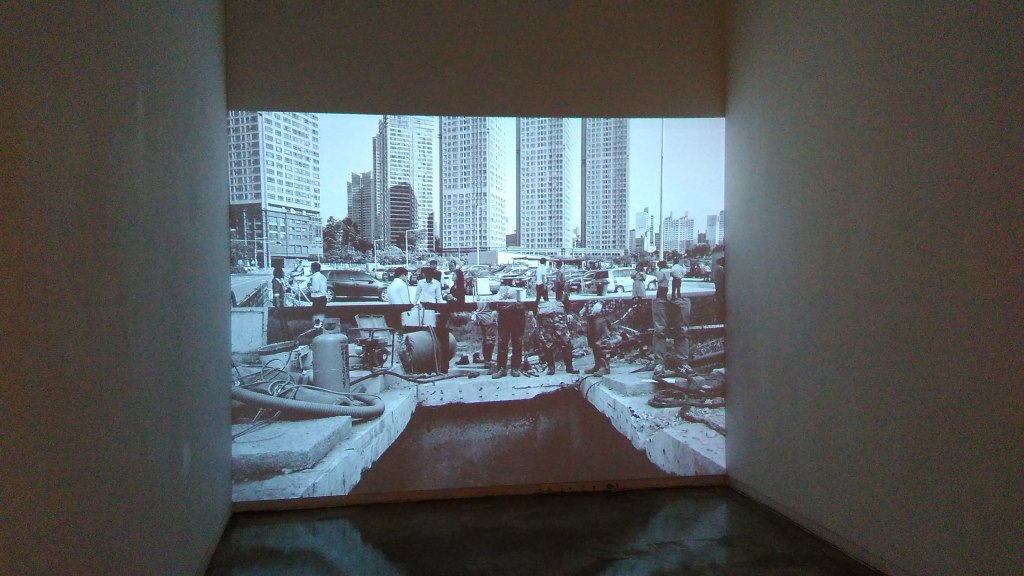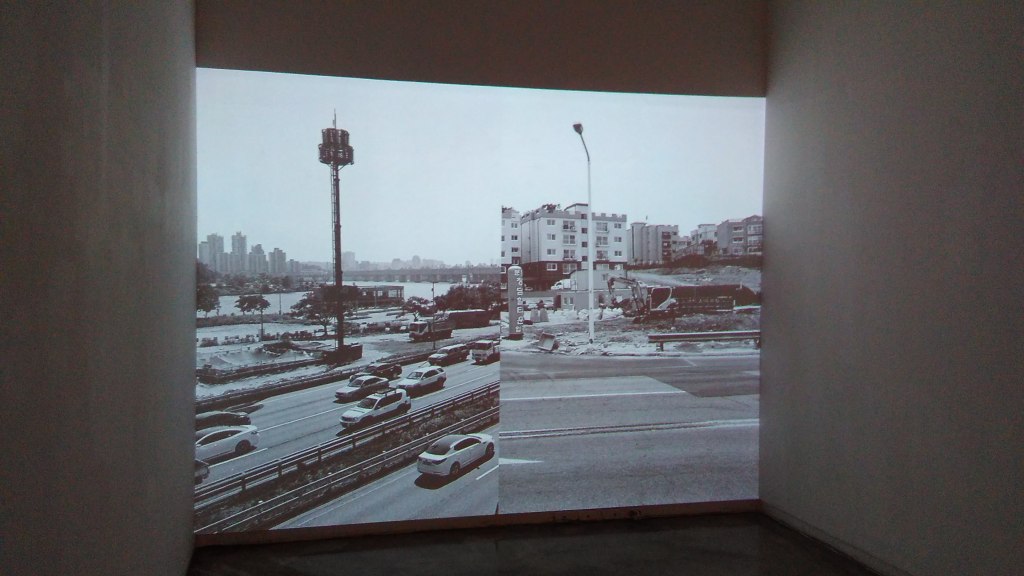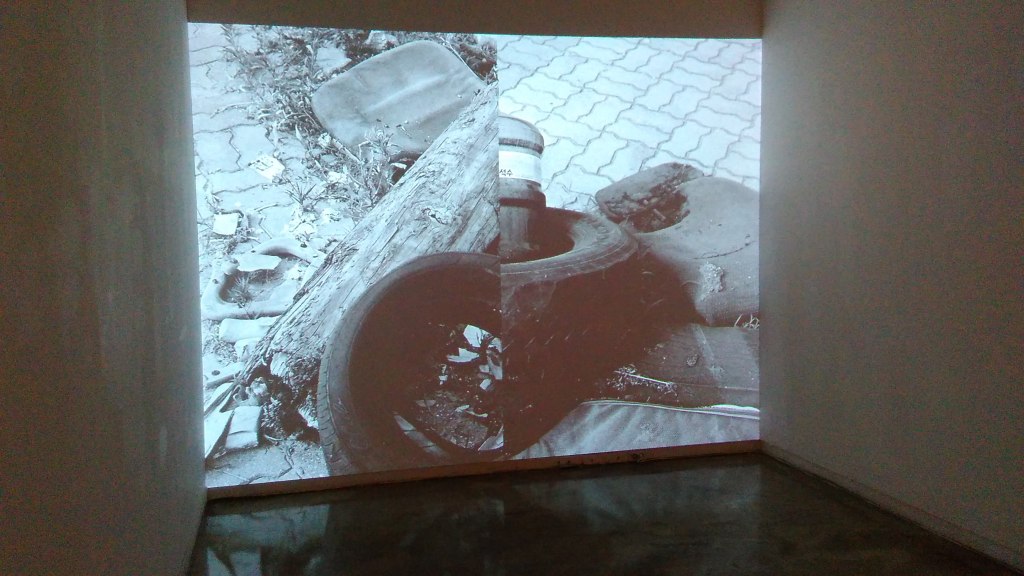Gyeonggi-do, July 23 – August 12, 2015, MMCA Goyang
MMCA Goyang is one of the artist studio spaces maintained by the National Museum of Modern and Contemporary Art (MMCA). It is located in the North-West of Seoul, which is actually already outside of the city boundaries and in Gyeonggi province. It is a rural atmosphere and while walking up the street to the studio building one passes by small vegetable fields. There is a lot of green and the surrounding area looks very peaceful.
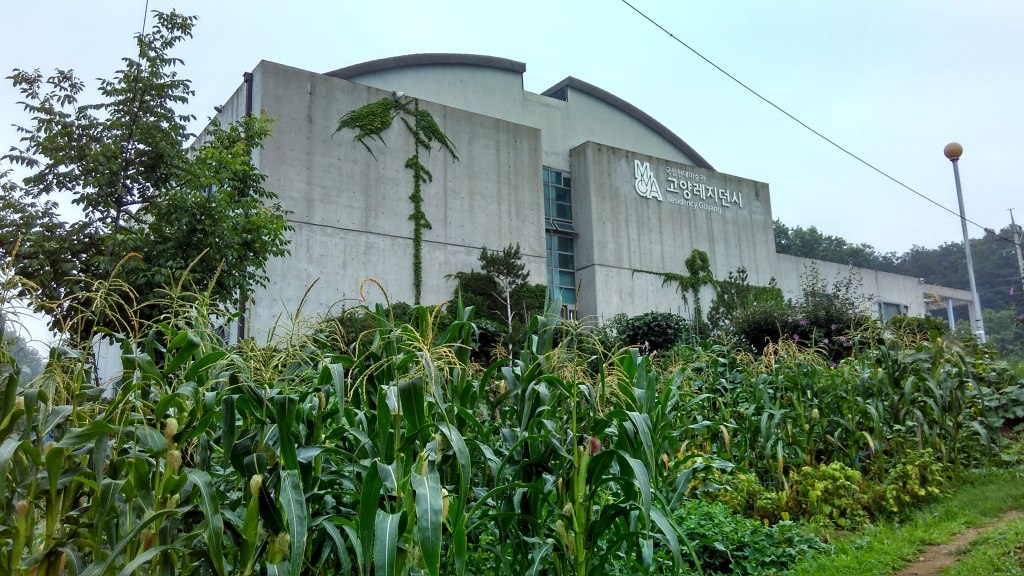 I visited for the opening of a group show of non-Korean artists who were in residence at Goyang MMCA combined with open studios. It was difficult to judge the show as a curated exhibition, as it was an assembly of works from a predefined set of artists working on their own projects. So I better mention each work separately:
I visited for the opening of a group show of non-Korean artists who were in residence at Goyang MMCA combined with open studios. It was difficult to judge the show as a curated exhibition, as it was an assembly of works from a predefined set of artists working on their own projects. So I better mention each work separately:
Marine Dominiczak presented a set of artefacts relating to her research into the plastic surgery industry: The focus was on one central theme which branches out into different media from performance to sculpture. The display consisted of a print, a sculpture, a ready-made object and a video of a performance. While the topic was self-evident, and the installation was neat, the motivation or aim of the project stayed a bit mysterious. 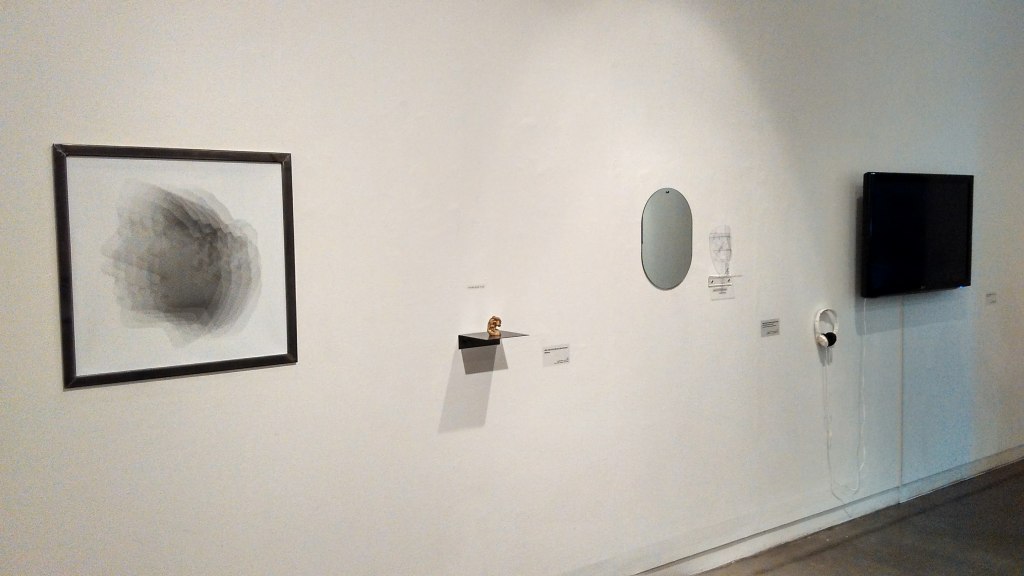 Hsieh Mu-Chi showed two older action painting videos, one where he poses as a famous painter returning to his high school in a rap music video and another one where paint is splashed onto a car hood while driving down a mountain road. Next to the two video works were two small circular paintings which seemed to be recent work. I was wondering why these two works were presented next to each other, as they seemed to be quite different: The wild and macho videos and the measured carefully executed paintings.
Hsieh Mu-Chi showed two older action painting videos, one where he poses as a famous painter returning to his high school in a rap music video and another one where paint is splashed onto a car hood while driving down a mountain road. Next to the two video works were two small circular paintings which seemed to be recent work. I was wondering why these two works were presented next to each other, as they seemed to be quite different: The wild and macho videos and the measured carefully executed paintings.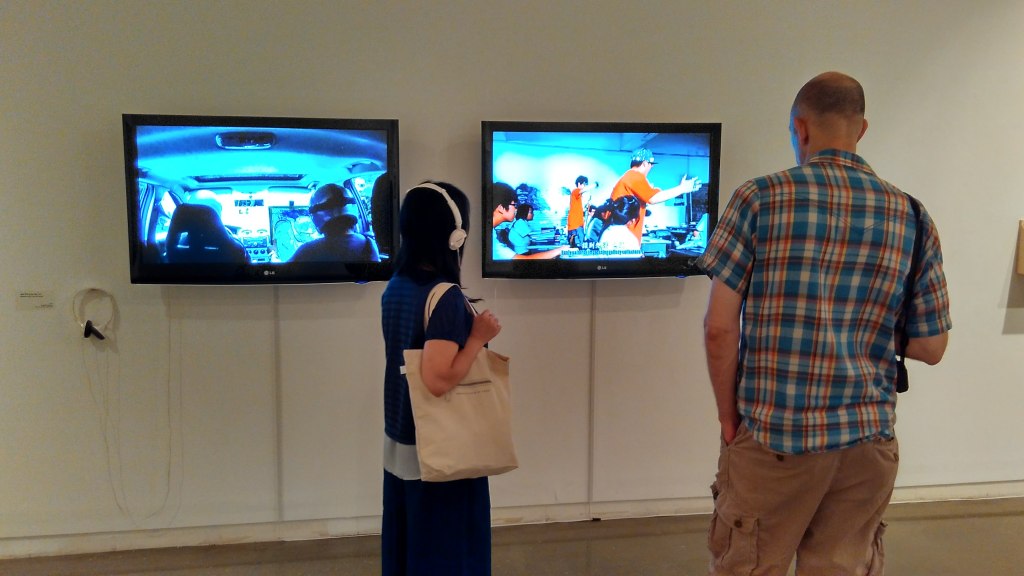
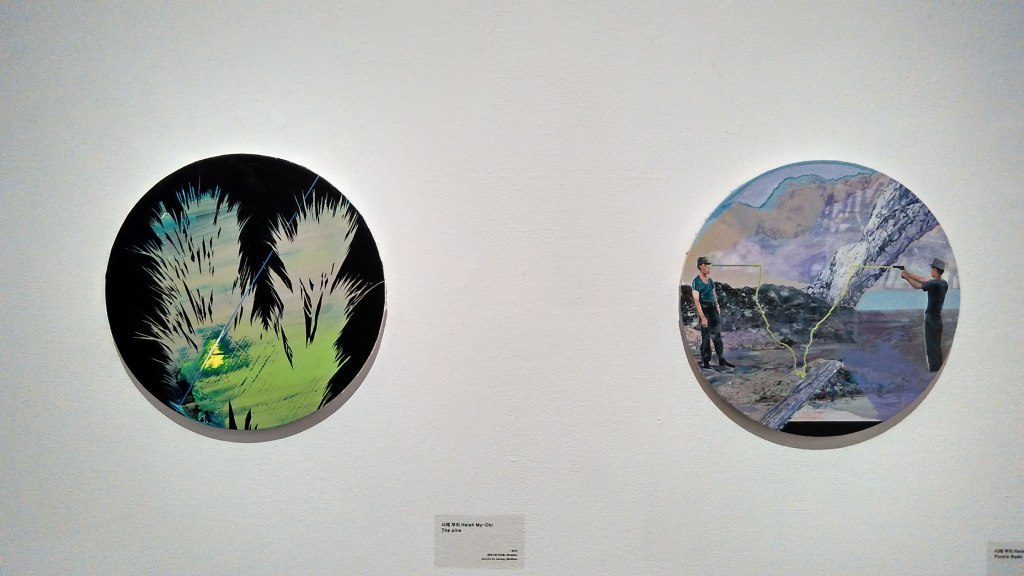
Simon Speiser’s main interest seems to be in science fiction stories. In the exhibition, a printed out story on A4 paper was available next to three clothes-turned-sculptures, their movement frozen in a thick layer of transparent resin. I wish I had the patience to read the story, but I didn’t…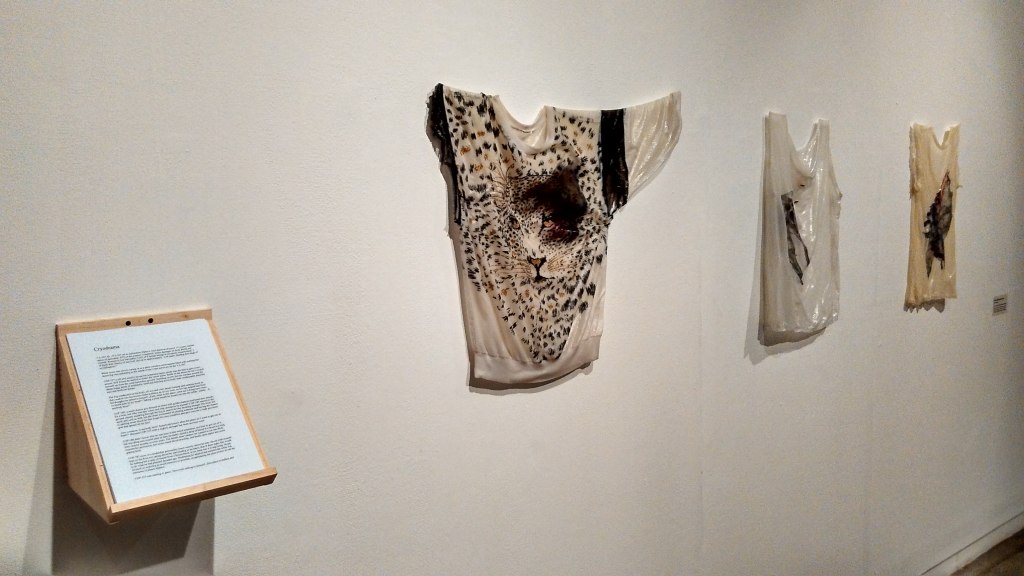
Midori Harima set up a simple plywood sculpture in the center of the room which served like a shelf for a long row of small Polaroid photos of sculptures created from every day trash – to be more precise, one sculpture per day of her stay, each documented on one Polaroid. (Up in her studio the actual sculptures were displayed). This work was very modest yet strong in expression. It was a document of the everyday, but it was not ordinary at all. If the artist placed the sculptures in front of her studio door, they would probably be quickly cleaned up as trash, but when documented in photographs, they turned into something else, that was both intimately related to the artist but also achieved universal validity.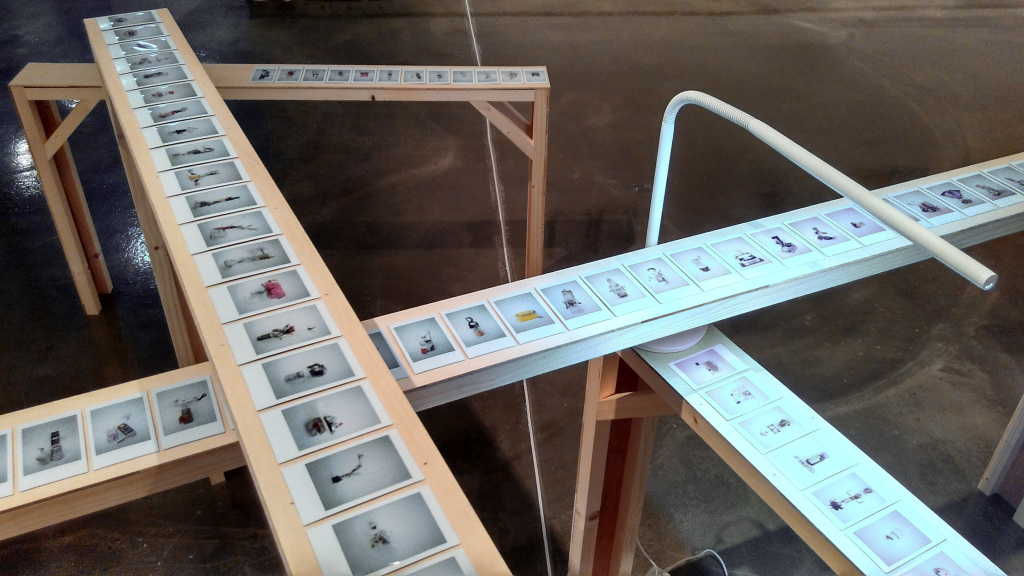
Carola Deye put a series of paintings of masks on display. They seemed to closely follow the designs of Korean folk theater masks. The special feat were folds in paper, which made the folk masks look a bit like sanitary masks worn as a precaution against respiratory diseases. The work could be easily decoded as quick reflection on the recent MERS epidemic, but it left the question regarding the relationship between Korean folk customs and contemporary health concerns open.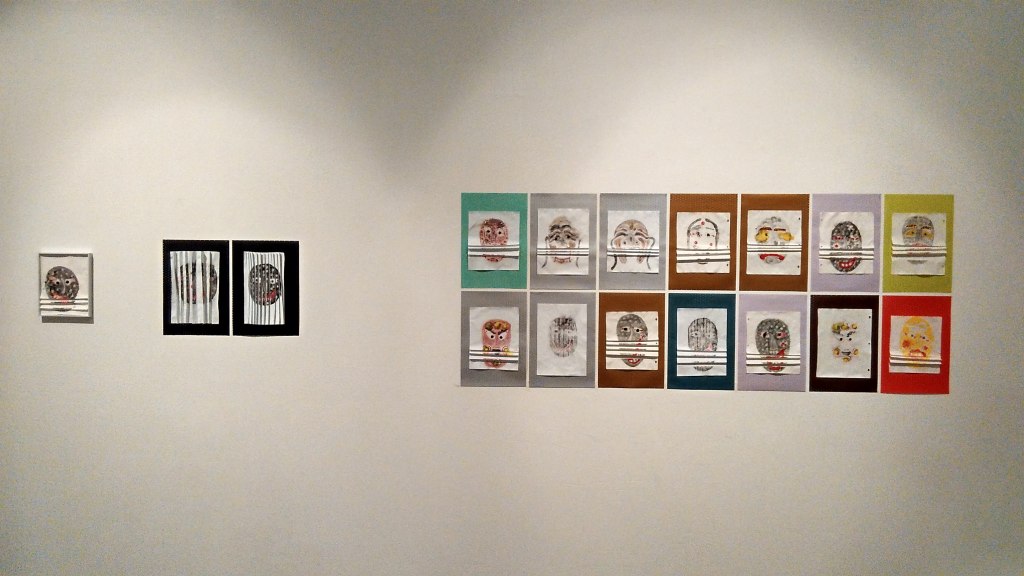
Kevin Platt showed three prints of the same photograph (a courtyard window of a brick house) on transparent plastic with a pile of concrete bricks stacked in front of it. The transparent prints, hanging slightly away from the wall created a strange feeling of depth. The bricks remained a mystery.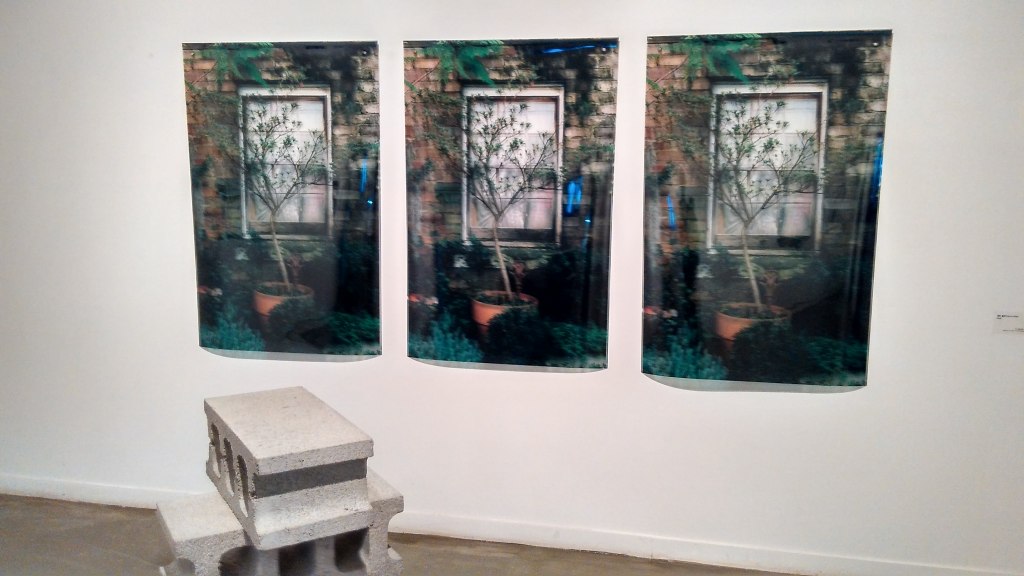
Thomas Koster showed a slide show of black and white photographs from Seoul, which were all cut in half and re-assembled into pairs. It looked like a combinatory game where the spectator struggles in reconciling the discontinuity of the cut with the elements and lines which hint as a certain continuity between the two spaces.